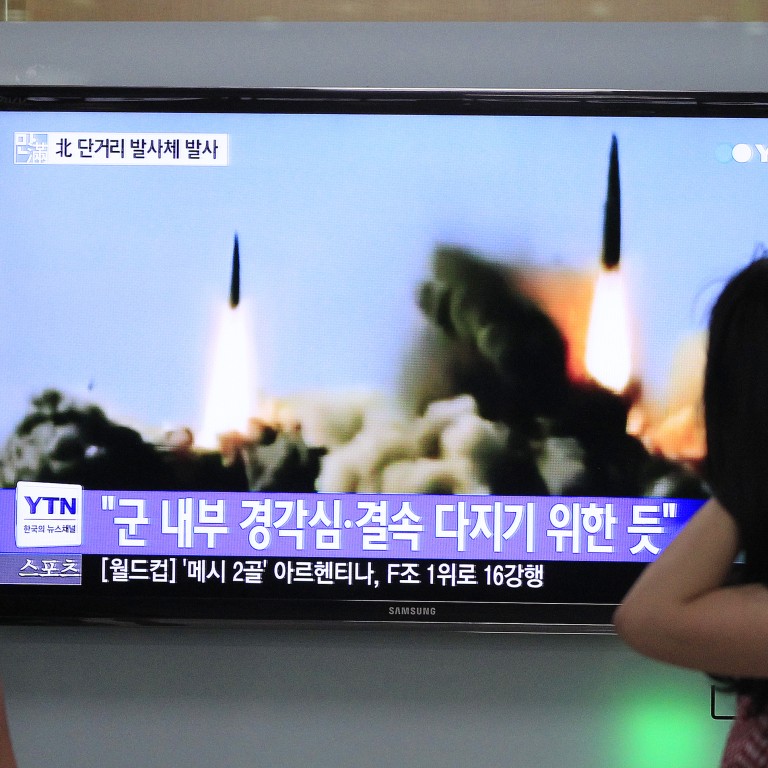
North Korea defies sanctions by test-firing two ballistic missiles
Launch of two Scud-class projectiles into sea comes ahead of visit to South by Xi Jinping
North Korea yesterday fired two ballistic missiles into the sea in breach of UN sanctions, the latest in a series of launches staged in an apparent show of force ahead of a visit to the South by Chinese President Xi Jinping .
The missiles, which appeared to be Scud class, were launched from the east coast and flew about 500km before crashing harmlessly into the water, a South Korean military official said.
It is unlikely there will be new initiatives from Beijing on [North Korea]
The test firings came three days after the North launched three short-range projectiles into the waters off its east coast.
Such launches are routine. North Korea frequently test-fires short-range, multi-rocket launchers, which are not prohibited under UN sanctions on the isolated country. North Korea's possession and testing of ballistic missiles such as Soviet-era Scuds, however, breach the sanctions.
North Korea has so far conducted test firing of its ballistic missiles and rockets 11 times this year, including four involving missiles.
It usually test-fires its rockets and missiles amid annual US-South Korean military exercises as a form of protest.
Pyongyang routinely denounces the joint military exercises as preparation for war.
Yesterday's launch came less than a week before Xi's July 3-4 visit to South Korea. Xi and South Korean President Park Geun-hye are expected to discuss North Korea's nuclear programme in a summit meeting on Thursday.
Cui Zhiying , a Korean affairs professor at Tongji University in Shanghai, said North Korea would be discussed at the summit, but Beijing was unlikely to resort to tough actions against Pyongyang.
Beijing has called for the resumption of the stalled six-party talks, which also include Russia, Japan and the United States, to tackle North Korea's nuclear issues. "Beijing and Seoul may jointly call for denuclearisation of the Korean peninsula, but it is unlikely there will be new initiatives from Beijing on solving the problem," Cui said.
Wang Sheng, a professor of international relations at Jilin University, said nuclear issues would be discussed by Xi and Park, but other topics such as free-trade agreements would be high on their agenda.
North Korea is also due to hold talks with Japan this week to work out the details of Pyongyang's plan to reinvestigate the fate of Japanese citizens kidnapped by the reclusive state decades ago.
Pyongyang said the missile launch was "part of its routine military exercises" and that there should be no effect on planned governmental talks between North Korea and Japan tomorrow, a North Korean foreign ministry official was quoted as saying by Japanese media.
Japanese Foreign Minister Fumio Kishida said that Japan wanted to raise the issue during the talks.
"We think this issue needs to be addressed properly at the government talks. We must make a firm demand towards North Korea that they follow the UN Security Council resolution and other agreements."


